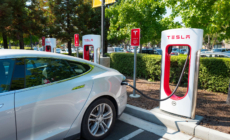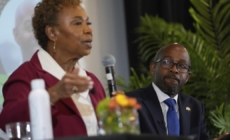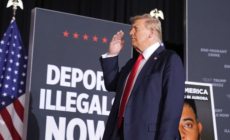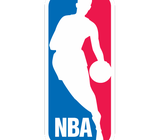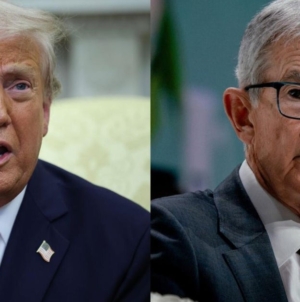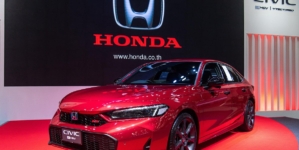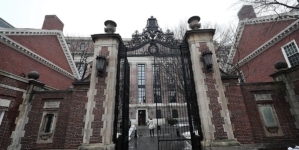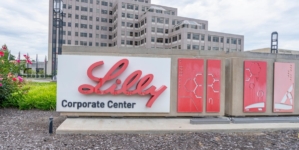-
Convicted killer who escaped California custody recaptured in Mexico - 24 mins ago
-
Teen Warned of ‘Decades Behind Bars’ After Tesla Arson Charge - 29 mins ago
-
Twins vs. Braves Highlights | MLB on FOX - 42 mins ago
-
ACLU moves to block more Venezuelan detainee removals - about 1 hour ago
-
BetMGM Bonus Code NEWSWEEK1500: Claim $150 NBA Playoffs Promo Friday - about 1 hour ago
-
Franklin Graham gives inside look into Easter Sunday special - about 1 hour ago
-
USMNT Abroad News: Christian Pulisic, Gio Reyna, Weston McKennie & More | SOTU - about 1 hour ago
-
Barbara Lee surges into lead in Oakland mayor’s race - 2 hours ago
-
Judge Boasberg Doesn’t Think He Has the ‘Power’ to Block Trump Deportations - 2 hours ago
-
Sea lion affected by toxins attacks surfers in California - 2 hours ago
U.S. consumers are “panic-buying” Korean beauty products amid Trump’s tariff war, retailers say
New York City — Skincare store Senti Senti in Brooklyn sells items you won’t typically find at other retailers in the U.S.
Almost all of the serums, face masks and creams sold at Senti Senti are imported from South Korea and Japan.
South Korea tops the list for cosmetics imports, but it could face a 25% tariff if President Trump’s plan moves forward following a 90-day pause on most of his so-called new reciprocal tariffs. The pause was announced last week.
A Japanese delegation held a meeting at the White House Wednesday in an attempt to avoid new 24% tariffs on its own imports following the conclusion of that 90-day pause.
“They are panic-buying,” said Marie Del Rosario, store manager for Senti Senti. “They know that it’s coming. They know that everything is going to change. So, they buy multiples of the products that they love.”
Last year, the U.S. imported more than $7.5 billion in cosmetics, according to numbers from the U.S. International Trade Commission. Approximately $1.7 billion of those imports came from South Korea. In recent years, retailers have seen a boom in Korean skincare sales, in part thanks to social media influencers.
“The customers that we have here, they come here with a purpose,” Rosario said. “…Most of the time it’s because they’ve seen us on social media.”
Carrie Kuiken told CBS News she is shopping for herself and her sister, who lives in Seattle.
“She sends me like a whole list of things that she wants, and then I ship them out,” Kuiken said.
Rosario says their most popular item is its sunscreen, which retails at $17.99. She says that tariffs would likely raise the price to over $20.
And that worries the Personal Care Products Council, a trade association that represents over 600 brands, including L’Oréal, Neutrogena, Estee Lauder and Procter & Gamble.
It said in a statement that it is specifically “concerned about trade policies that could result in higher prices for personal care products,” adding that U.S. consumers use “about six to 12 products each day, including sunscreen, toothpaste, shampoo, moisturizer and fragrance.”
Michelle Ranavat, CEO and founder of her own beauty line Ranavat, says the cosmetic industry relies on a “pretty complex ecosystem.”
“The longer this uncertainty goes on, the more difficult it is for small businesses to plan,” Ranavat told CBS News.
Her products are packaged in the U.S., but the ingredients come from India.
“I think the impact is gonna be pretty significant,” she said of the tariffs.
For now, stores like Senti Senti are preparing for the worst.
“We do anticipate the increase of the prices, either end of April or first week of May,” Rosario said.
Source link

